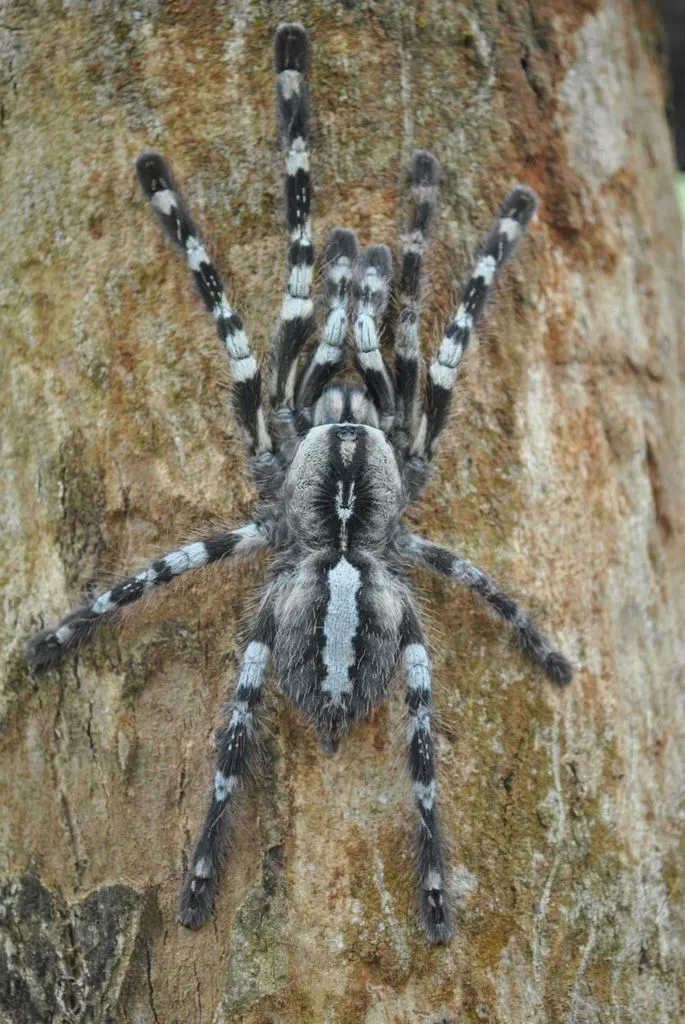What is a Tarantula?
Tarantulas are large, hairy spiders belonging to the Theraphosidae family. They are known for their impressive size, often with leg spans reaching several inches, and their relatively docile temperament, which makes them popular pets. Originating from tropical and subtropical regions around the world, tarantulas exhibit a fascinating array of colors, patterns, and behaviors. They are primarily nocturnal hunters, feeding on insects, small reptiles, and even rodents in the wild. These spiders are equipped with fangs used to inject venom, which helps them to subdue their prey. Although their bite can be painful, it is generally not considered life-threatening to humans. Due to their unique characteristics, tarantulas have captivated the interest of many enthusiasts, leading to a growing demand for them as pets, including the tarantula for sale in India.
Tarantula Species Found in India
India is home to several species of tarantulas, each with its unique features and habitats. These spiders contribute to the biodiversity of the Indian ecosystem, playing a role in controlling insect populations. The availability and legality of owning specific species can vary, so it’s essential to research and understand the local regulations before acquiring a tarantula for sale in India. The natural environments of these tarantulas range from dense forests to open grasslands, with their behaviors and requirements differing depending on the species and location. Conservation efforts and habitat preservation are crucial to protect the native tarantula populations and ensure their long-term survival. When considering a tarantula for sale in India, knowing which species are native can also inform the care and enclosure setups, contributing to their well-being in captivity.
Indian Ornamental Tarantula
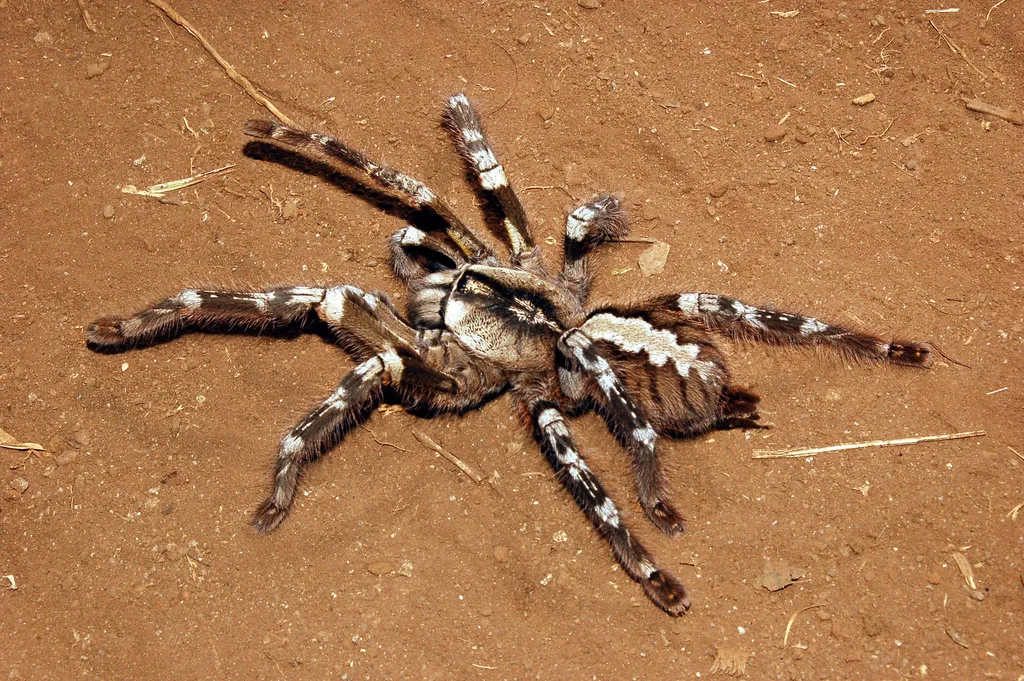
The Indian Ornamental Tarantula (Poecilotheria regalis) is one of the most sought-after tarantula species. Known for its striking black and yellow patterns, this arboreal tarantula is native to the forests of India. It prefers to live in tree hollows, making a vertical enclosure setup necessary if kept as a pet. Though beautiful, this species requires experienced keepers due to its potent venom and fast reflexes. Prospective owners should be well-versed in their specific needs, including temperature, humidity, and feeding requirements, before seeking a tarantula for sale in India. Their care involves creating a habitat that mimics their natural environment, allowing for climbing and hiding, which is critical for their well-being. Proper handling techniques and safety protocols are essential when interacting with these tarantulas.
Indian Violet Tarantula
The Indian Violet Tarantula (Chilobrachys India) is another species that is native to India and popular in the exotic pet trade. This terrestrial species is known for its striking violet coloration, especially on its legs, and its relatively docile nature compared to other species. This tarantula species thrives in a burrow, so the enclosure needs a deep substrate for burrowing. The Indian Violet Tarantula’s needs also include maintaining a high humidity level to mimic its natural environment. This tarantula can be considered by beginners, provided they research and fully understand the needs of this species. When searching for a tarantula for sale in India, confirm that the seller provides detailed care instructions, as the success of keeping this species depends greatly on the keeper’s ability to provide suitable conditions.
Safety Precautions for Tarantulas
When keeping tarantulas as pets, certain safety precautions are crucial to ensure both the safety of the owner and the well-being of the spider. Always handle tarantulas with care and avoid sudden movements that could startle them. Be careful when opening the enclosure, as tarantulas can be very fast, and unexpected escapes can be a problem. It’s wise to keep the enclosure locked or secured to prevent unauthorized access. Proper handwashing should always be done after handling the tarantula or cleaning its enclosure. This helps prevent allergic reactions or contact with any venom or irritating hairs. In case of a bite, remain calm, clean the wound, and monitor for any adverse reactions. Though not often fatal, tarantula bites can be painful, and some individuals may have allergic responses.
Where to Buy Tarantulas in India
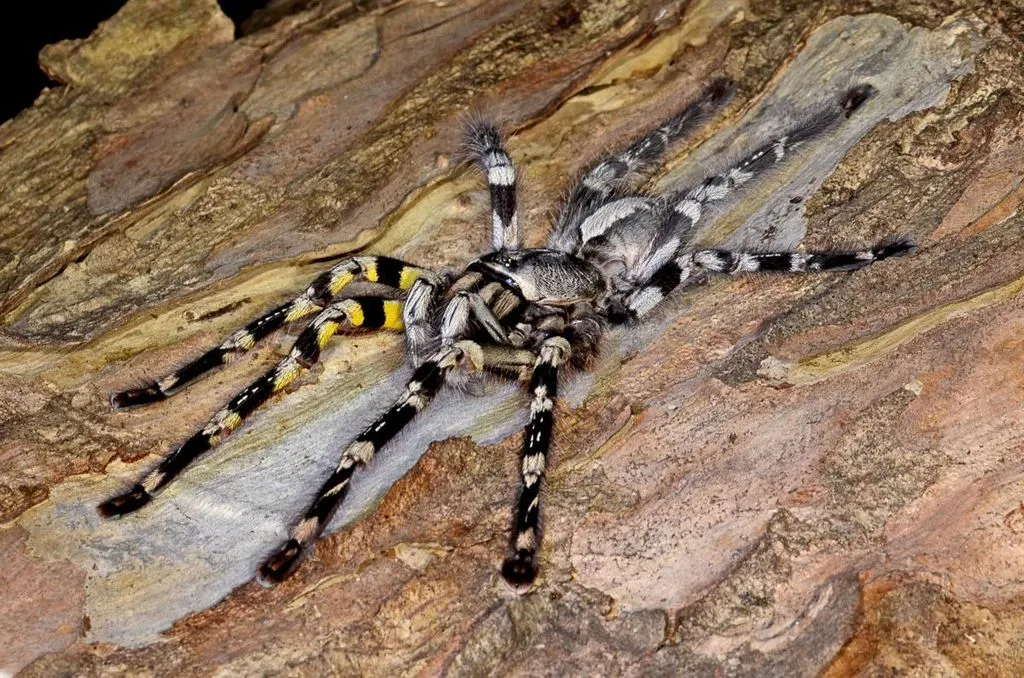
Finding a reputable source for a tarantula for sale in India is vital to ensure the health of the spider and to support ethical practices. Several avenues can be explored, including online retailers and local pet shops. Before making a purchase, it is always recommended to do thorough research, check reviews, and inquire about the tarantula’s origin, health, and care history. Always prioritize sellers who prioritize the well-being of their animals and offer transparent information on their care and origin. Verify that the seller complies with all local regulations regarding the sale and ownership of exotic pets. This includes making sure the seller has the necessary permits and licenses, and also provides all the necessary information and advice to ensure a safe and successful experience.
Online Retailers
Purchasing a tarantula from online retailers offers convenience and a wide selection, but it also carries risks. Always check the seller’s reputation by reading customer reviews and checking social media pages. Ensure the seller provides clear pictures and detailed descriptions of the tarantulas they are selling. Verify if they offer any guarantees regarding the health of the tarantula and proper shipping procedures. Be certain the retailer can ship the tarantula safely to your location, and inquire about their packaging methods to prevent any harm during transit. When choosing a tarantula for sale in India from an online retailer, verify that the business has any necessary licenses or permits for selling exotic animals. Also, confirm that the retailer offers comprehensive care information to help the buyer properly care for their tarantula.
Local Pet Shops
Buying from local pet shops can offer the advantage of seeing the tarantula in person before purchasing and also allows for direct interaction with the seller. Look for pet shops that specialize in exotic animals and have staff knowledgeable about tarantula care. Inquire about the tarantula’s origin, feeding habits, and health status to ensure the animal is well cared for. Before completing a purchase, check the enclosure conditions, ensuring the tarantula has adequate space, proper temperature, and a clean environment. Local pet shops can be ideal to get a tarantula for sale in India, offering a chance to get immediate support and advice on the local environment. Furthermore, buying from a local shop could promote a better grasp of the local regulations for owning exotic pets and create a more involved relationship with a local specialist for ongoing support.
Tarantula Care Guide
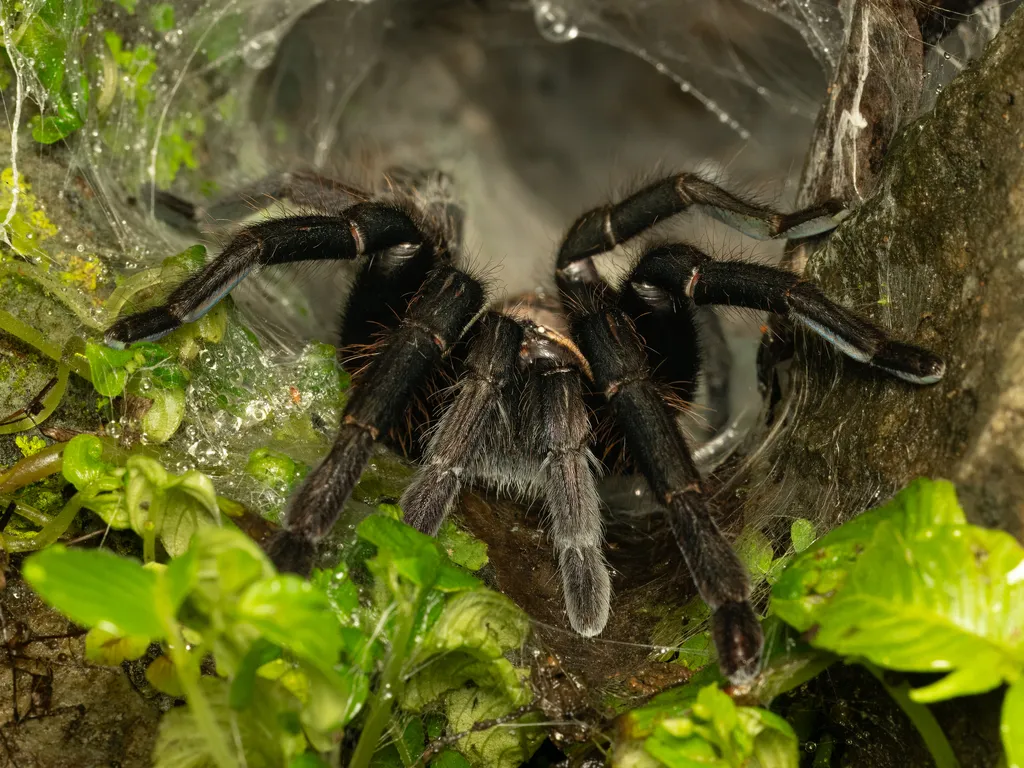
Caring for a tarantula involves creating an appropriate habitat, providing suitable food, and handling the spider safely. Understanding the specific needs of the tarantula species you choose is vital for ensuring its health and longevity. The ideal habitat mimics the spider’s natural environment, including temperature, humidity, and substrate. Regular feeding, typically of insects like crickets or mealworms, is essential, and a consistent water source must be provided. Proper handling techniques and avoiding unnecessary contact are important to prevent stress or injury to the spider. Researching and understanding these requirements ensures you can offer the appropriate care to a tarantula for sale in India.
Setting up the Enclosure
Setting up the right enclosure is essential for your tarantula’s health. The enclosure must be the right size for your specific tarantula, allowing it to move freely without too much space, which might make it feel unsafe. The type of enclosure depends on the tarantula species; terrestrial species need a horizontal setup, whereas arboreal species benefit from a vertical setup with climbing structures. The substrate, which is the material at the bottom of the enclosure, should be chosen carefully. It must retain moisture and allow burrowing for terrestrial species. The enclosure should also maintain appropriate temperature and humidity levels using a thermometer and hygrometer. Providing hiding places, such as cork bark or artificial plants, can help reduce stress and provide the tarantula a safe area. Make sure the enclosure is secure and has a secure top to prevent escape.
Feeding Your Tarantula
Feeding your tarantula a balanced diet ensures its good health and well-being. Tarantulas typically eat live insects, such as crickets, mealworms, and roaches, but the size of the prey must match the size of the tarantula. Feed young tarantulas more frequently, usually 2-3 times a week, and adult tarantulas can be fed less often, such as once a week or every other week. Always remove any uneaten prey after 24 hours to prevent disturbing the tarantula. Provide a shallow dish of fresh water at all times to ensure the tarantula stays hydrated. When purchasing a tarantula for sale in India, make sure you understand its specific dietary requirements, which might differ based on the species and age.
Handling and Interaction
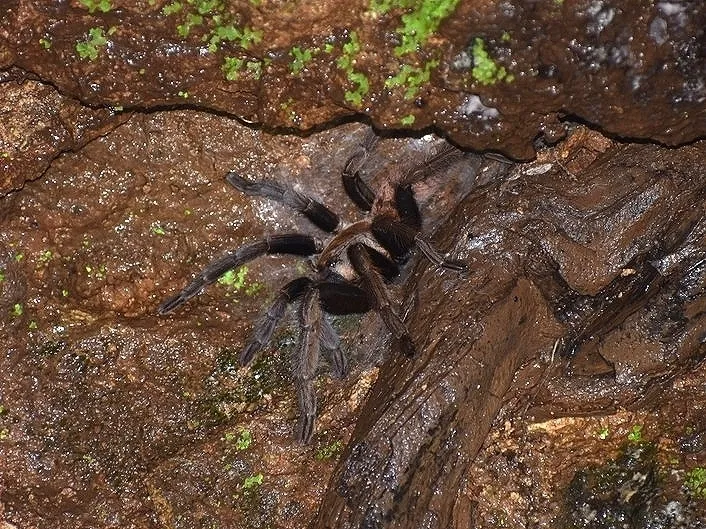
While tarantulas are generally not aggressive, handling should be done cautiously and only when necessary. Avoid handling the tarantula if it appears stressed, is about to molt, or after it has eaten. If handling is required, move gently and slowly to avoid startling the spider. Always wash your hands before and after handling a tarantula to avoid spreading bacteria or allergens. When the tarantula is still young, and even when older, always keep the handling sessions short to avoid stress, which may induce defensive behaviors. Always handle the tarantula over a soft surface, in case it falls, and always be aware of the tarantula’s behavior. Understanding tarantula behavior, like their posture or movement, will allow you to read their mood and make safe handling decisions.
